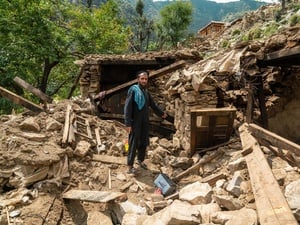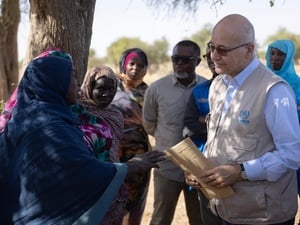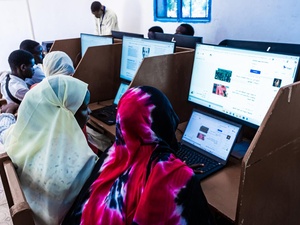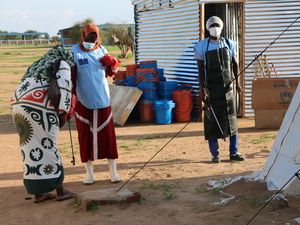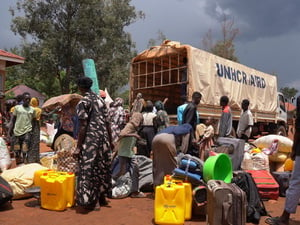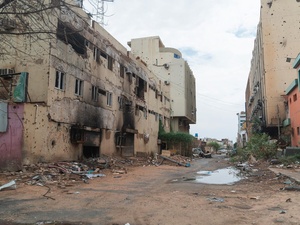Chad: Distribution of basic relief supplies begins in Adré area
Chad: Distribution of basic relief supplies begins in Adré area
UNHCR emergency staff yesterday began the distribution of basic relief supplies to an estimated 1,000 people in the Adré area of eastern Chad. The approximately 200 refugee families receiving this first distribution are living in Kol Kol, some 25 km north of Adré and less than 5 km from the volatile Chad-Sudan border - an area that was recently attacked by Sudanese Arab militia from across the border. The armed incursion sent refugee men fleeing further inland with livestock. Women and children were left on their own. The distribution of plastic sheeting for shelter, blankets and jerry-cans which was started yesterday for this vulnerable group will continue today.
The start of the distribution exercise was delayed by several hours yesterday as the truck delivering the relief items from a temporary warehouse in Abéché, the main eastern town, got stuck in mud for more than three hours. Road conditions in the area remain extremely difficult and are likely to hamper our distribution of aid to the refugees who remain scattered along the border. Although the rainy season is coming to an end and a number of roads are becoming passable, some areas still remain muddy and marshy. Our emergency team, which has spent the last several days visiting refugee groups to determine how best to distribute aid, say their mobility has been extremely slow. In some cases, it took them a whole day to visit just one site - not because of long distances but because of poor roads.
The Adré area has thousands of refugees living in at least nine sites. We are working with local authorities and the refugee communities to identify vulnerable groups who will receive assistance before a more general distribution can be made. Because of the area's proximity to the border and general insecurity, our staff are accompanied by a security detail of military escorts.
Refugees have told our emergency team that people continue to flee into Chad to escape the bombing of villages in the Darfur region of western Sudan. Refugees say that last week they witnessed from the Chad side of the border the aerial bombardment of their home areas inside Sudan. We are unable to verify these reports as we do not have a continuous presence along the border.
Meanwhile, we are continuing to work with authorities to identify sites for the transfer of refugees. A total of eight sites have been proposed and will be assessed by our site planner from next week. The availability of water will be crucial for the establishment of camps. Refugees are for the moment relying on river beds, known locally as wadis, to meet their needs. They get water by digging holes into the river bed. We are worried that the situation may worsen in December when the wadis dry up. We hope that by then we will have agreed with authorities on the location of camp sites.




